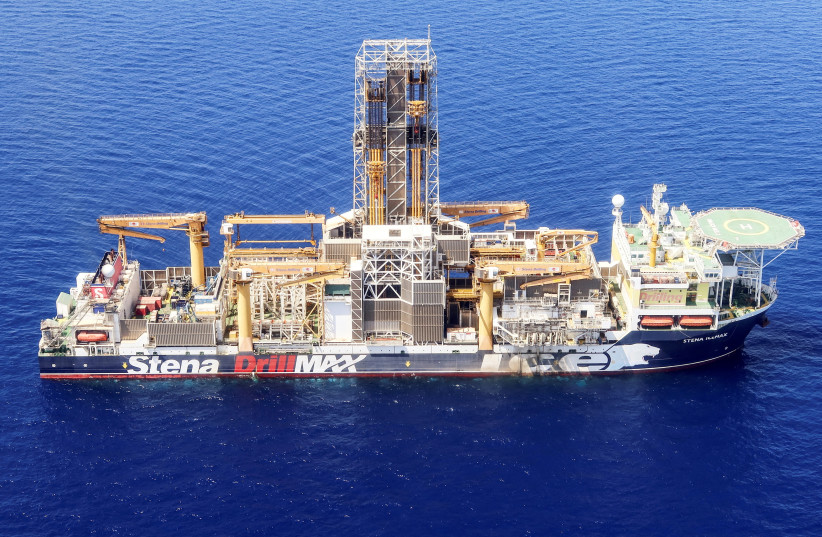Hezbollah Secretary-General Hassan Nasrallah claimed on Tuesday night that indirect maritime border demarcation talks between Lebanon and Israel were not moving forward, despite optimistic statements by Lebanese officials in recent weeks, according to the Lebanese Al-Akhbar newspaper.
"So far, the American mediator in the border demarcation negotiations has not come up with a clear answer, although Lebanon has made great concessions, and what Lebanon wants at the minimum has not been obtained," said Nasrallah in remarks during a meeting with clerics ahead of Ashura, a Muslim holy day which marks the day God parted the Red Sea for the Israelites in the Exodus and for Shi'ite Muslims also marks the day when the Prophet Muhammad's grandson Hussein was killed in battle.
The Hezbollah leader added that while there are "positive signs," Hezbollah is "still waiting, but there is no response from the enemy until today."
Nasrallah also rejected claims that the terrorist movement was disrupting negotiations, claiming that a recent speech of his "led to affirming the negotiations, not disrupting them."
The Hezbollah leader stressed that while the movement does not want a war, Hezbollah would stop Israel from extracting gas everywhere if Lebanon is not permitted to begin extracting gas in its waters.

“The enemy today feels weak and does not want war, and knows that a war is not only with Hezbollah, but may develop with the whole axis to overthrow it. Going to war, for Israel, is a very risky and costly option," said Nasrallah. "We hope that we will not fire a bullet or a missile and that the enemy will retreat. We are waiting for developments and are ready for everything.”
Nasrallah added that there may be a "localized targeting" conducted by Israel and "an appropriate response" by Hezbollah and that, depending on the Israeli response to Hezbollah's response, this "may turn matters into a war."
Lebanon is facing "a historic and golden opportunity to get out of its crisis, and if we do not take advantage of it, we may not extract oil for the next 100 years," warned Nasrallah, according to Al-Akhbar.
Hezbollah says Lebanese government does not control them
Nasrallah's latest statements come just over two weeks after Hezbollah launched a total of four drones toward the Karish natural gas rig in two separate incidents. The drones were shot down and did not pose a threat to the gas rig, according to the IDF.
Last week, Nasrallah warned that the Lebanese government does not control the movement's operations against Israel, stressing that "whoever promises the Americans that the resistance will do nothing is deceiving them and deceiving themselves."
"If the goal is to prevent Lebanon from extracting oil and gas, no one will be able to extract gas and oil or sell gas and oil," warned the Hezbollah leader last week, stressing that the movement will attack all the gas fields and rigs along Israel's coast if Lebanon isn't permitted to extract gas.
Lebanese officials optimistic about demarcation talks
Despite Nasrallah's claims that demarcation negotiations are not moving forward, Lebanese officials have issued multiple statements expressing optimism about the process and condemning actions by Hezbollah in recent weeks.
Lebanese President Michel Aoun stated earlier this month that a solution regarding the maritime border demarcation negotiations with Israel would be reached soon, saying "I believe that we have reached an understanding with the Americans who are mediators between us and Israel," according to Lebanese media.
"The results of the demarcation will be positive for the benefit of both parties, and if the atmosphere was not positive, we would not have followed the negotiation process," added Aoun.
Additionally, earlier this month Lebanese Prime Minister-designate Najib Mikati criticized Hezbollah's decision to launch drones towards the Karish gas rig.
"Lebanon considers that any action outside the framework of the state's responsibility and the diplomatic context in which the negotiations are happening is unacceptable and exposes (Lebanon) to unnecessary risks," a statement by the office of Mikati said.
